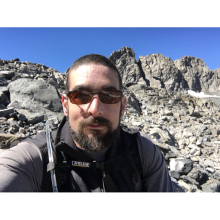Abstract
Building distributed systems is hard. Today’s organizations demand their applications be as flexible and resilient as possible. Whether it’s moving to the edge, supporting multi-cloud, multi-geo, or just getting everything to talk to each other properly – communication has been at the heart of these new challenges.
NATS is an open-source project that aims to fundamentally improve the way services communicate with each other. In this talk, you will learn how to leverage NATS to streamline communication and fleet management for devices at the edge, no matter their number, size or computing power.
Interview:
What's the focus of your work these days?
I’m currently working at Synadia on the NATS.io messaging system. I get to work on really challenging distributed systems problems at the edge, specifically in the realm of decentralized security, data in motion, and adaptive architectures that span multiple clouds and geos.
I also produce a video series at https://rethink.synadia.com/ where I try and make understanding distributed systems more accessible to a wider range of developers, and challenge the status quo with how these large systems are built.
What's the motivation for your talk at QCon San Francisco 2023?
I think there is a ton of really fun challenges that come with building software at the edge. Cloud architectures are a pretty well-trodden path these days, but much of the thinking behind cloud doesn’t really translate to the edge. Devices are more resource constrained, have more unreliability in terms of connectivity, and require a different way of thinking in order to be successful.
I hope to shed light on some of these challenges and how we can rethink some fundamentals to build the best edge applications.
How would you describe your main persona and target audience for this session?
I try and make my talks accessible to software engineers at any level, but I think the folks who will enjoy it most will be those who are in a more senior or staff+ role, where you start having to solve problems that cut across multiple teams in an organization.
Also, anyone interested in running or building large-scale distributed systems will love this talk!
Is there anything specific that you'd like people to walk away with after watching your session?
I always want folks to walk away feeling like their thinking has been challenged, and excited to take some of the ideas that NATS has implemented to their organization, so that they can engage in building more adaptive systems that scales alongside their business needs and team topology.
Speaker

Jeremy Saenz
Senior Software Engineer @Synadia Working on NATS.io, Author of Martini, Negroni, Inject & CLI, Previously CPO @Kajabi
Jeremy is senior software engineer at Synadia Communications, maintainer of the open source messaging system, NATS. He has worked on many popular open source projects in the Go community including Martini, Negroni, CLI, Gin, and Inject. Previously Chief Product Officer at Kajabi, Jeremy enjoys wearing a bunch of hats and is passionate about nudging the software engineering industry forward.







